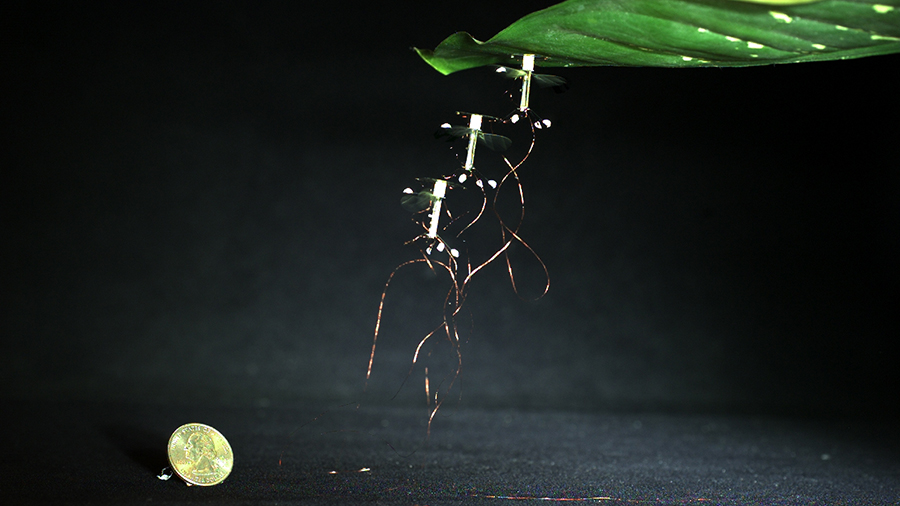These robot bees just learned a neat new trick

Roboticists at Harvard University in the US have added new capabilities to their RoboBees - these flying microbots can now perch during flight to save their energy, in a similar way to bats, birds and butterflies.
That means they're able to stay in the air longer without using up too much extra energy, explain the research team. Eventually, these little flying droids have the potential to be used in search and rescue operations and for other similar kinds of tasks.
Key to the new energy-saving mode is a technique called electrostatic adhesion, achieved through a small electrode patch and a shock-absorbing foam mount. The static electricity that lets you stick a balloon to a wall uses the same basic science.
I, microrobot
"A lot of different animals use perching to conserve energy," explains Kevin Ma, one of the research team. "But the methods they use to perch, like sticky adhesives or latching with talons, are inappropriate for a paperclip-size microrobot, as they either require intricate systems with moving parts or high forces for detachment."
A small electrical charge is used to keep the RoboBees 'stuck' to a leaf or other surface while they rest up. Eventually, the researchers want to make the microbots capable of sticking to any surface at any angle.
On robots this small, carrying around bulky batteries isn't really feasible, so any changes need to be made while adding as little weight and using as little extra power as possible. The RoboBees' new 'stickability' ticks both of those boxes.
- Take a look at Google's latest two-legged robot
Sign up for breaking news, reviews, opinion, top tech deals, and more.

Dave is a freelance tech journalist who has been writing about gadgets, apps and the web for more than two decades. Based out of Stockport, England, on TechRadar you'll find him covering news, features and reviews, particularly for phones, tablets and wearables. Working to ensure our breaking news coverage is the best in the business over weekends, David also has bylines at Gizmodo, T3, PopSci and a few other places besides, as well as being many years editing the likes of PC Explorer and The Hardware Handbook.
